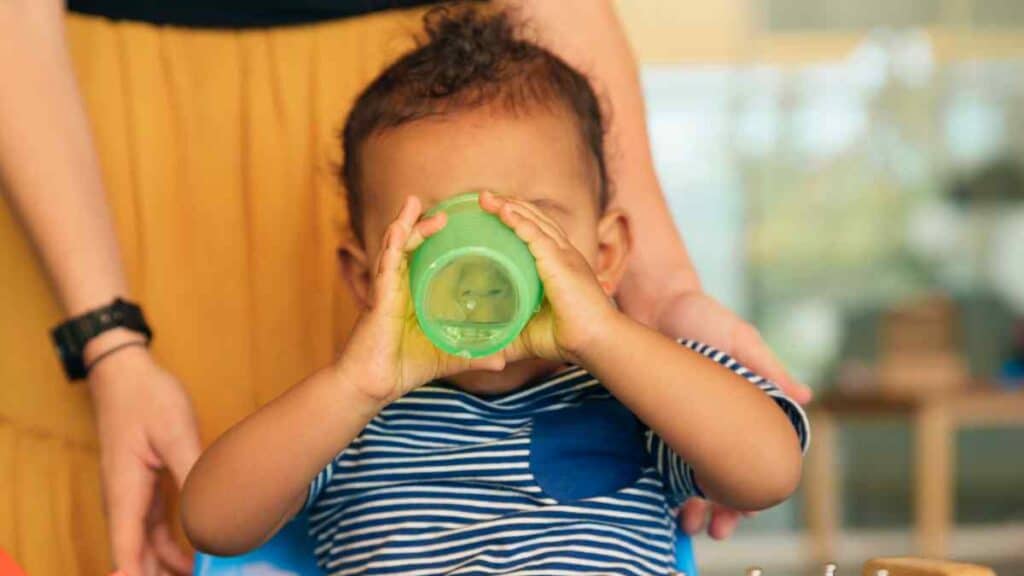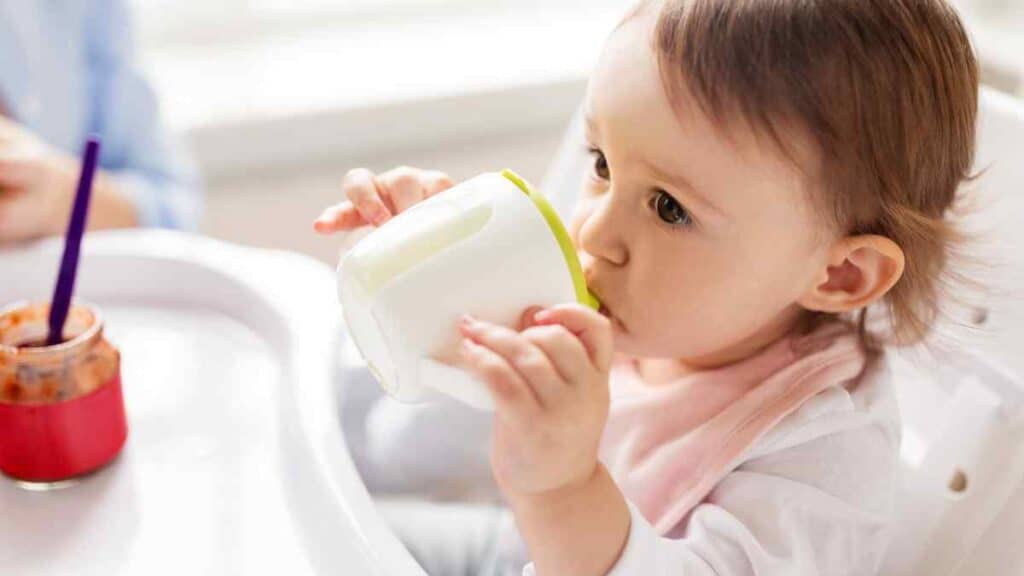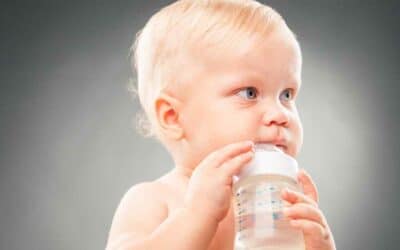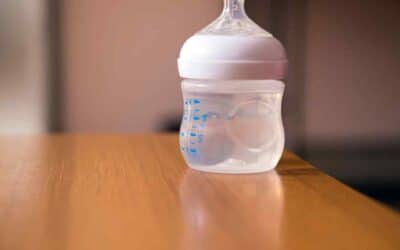Welcome to the beautiful, rewarding, and occasionally perplexing journey of parenthood, where ensuring the optimal health of your new bundle of joy is paramount! One fundamental aspect that is often fraught with misconceptions and uncertainties is the hydration of newborns. Hydration is like the unsung hero of our body’s physiological orchestra, quietly maintaining harmony and balance, allowing every organ to perform its symphony flawlessly.
So, how much is too much, and how little is too little? Embark on this enlightening voyage with us as we navigate through the droplets of wisdom, dispelling myths, and providing you with practical, clear, and concise guidelines to ensure your little one is happily hydrated. Whether your little cherub is breastfed, formula-fed, full-term, or premature, we have a fountain of knowledge to share, to assist you in fostering a healthy, hydrated, and harmonious start to your life!

Basic Understanding of Newborn Physiology
Navigating the waters of newborn hydration begins with understanding their distinct fluid requirements, which significantly differ from those of older children and adults. According to the American Academy of Pediatrics, the intricate dance of fluid intake, which includes breast milk, baby formula, and eventually, baby water, needs meticulous attention to ensure healthy hydration in babies.
Newborn’s Fluid Requirements
Newborns, primarily nourished by breastmilk or formula, receive all the necessary fluids from these sources, and introducing other liquids like plain water too early can lead to water intoxication, a serious condition where the balance of electrolytes in a baby’s body is disrupted by large amounts of water. Their fluid requirements are closely related to their body weight, and it is crucial to mix formula accurately and safely prepare baby formula, ensuring it is neither too diluted nor too concentrated. Introducing water can be considered when babies start solids, typically around six months, using safe containers like a sippy cup or a straw cup instead of a fancy cup or popsicle molds. It is essential to know how much water is suitable, gradually increasing the amount as they grow and start consuming table food.
Factors Affecting Hydration Needs
Several factors impact the hydration needs of a newborn, including age, weight, health conditions, and environmental conditions like hot weather. For instance, the fluid management needs of a premature baby, whose gestational age is less than that of a full-term baby, will vary, often requiring careful intravascular volume and arterial pressure monitoring and sometimes IV fluids to stay hydrated. Even a minor fluctuation in their fluid balance can affect critical physiological processes like maintaining body temperature. Babies in warmer climates or those showing signs of illness might need an increased fluid intake throughout the day. In such cases, the intake of fluids, including breast milk and baby formula, needs precise adjustment to prevent dehydration while ensuring electrolyte management.
Recognizing Dehydration in Newborns
Recognizing the signs of dehydration in newborns is paramount. Symptoms include fewer tears when crying, a sunken soft spot on the head, discolored hands and feet, and sunken eyes. The frequency of wet diapers is also a reliable indicator of hydration status in babies; decreased urine output and dark yellow urine are signs of dehydration. Babies losing more than 7% of their birth weight are also at increased risk of dehydration. Moderate to severe dehydration can lead to weight loss, and decreased serum sodium levels, and can be life-threatening if not addressed promptly, emphasizing the importance of providing enough water and fluids like breastmilk or formula for babies.
Sources of Hydration for Newborns

Continuing on our journey to understand the hydration needs of newborns, let’s delve into the various sources of hydration available, and explore when and how they should be introduced to ensure that babies drink enough water and receive adequate hydration, keeping them happy and healthy.
Breast Milk
Breast milk is the nectar of life for newborns, recommended exclusively by the American Academy of Pediatrics for the first six months of life. It’s a magical concoction of nutrients, antibodies, and the right amount of water, ensuring babies are well-nourished and hydrated. This miraculous fluid adapts its composition as the baby grows, providing optimal nutrition and hydration at every stage. It not only maintains the fluid balance, averting dehydration but also fortifies the baby’s immune system, paving the way for a healthy childhood.
Formula Milk
For those who can’t breastfeed or choose not to, baby formula is a safe alternative. It’s paramount to choose the right one, considering factors like age, health condition, and any special dietary needs the baby might have. It’s crucial to prepare it correctly, avoiding diluting formula excessively, which could lead to water intoxication, or making it too concentrated, causing dehydration. Formula milk should be mixed with safe drinking water, preferably boiled water cooled to the right temperature, ensuring it’s free from harmful microorganisms and contaminants.
Oral Rehydration Solutions
In cases where babies show signs of moderate dehydration like a crying sunken soft spot or decreased urine output, Oral Rehydration Solutions can be used as advised by healthcare professionals. They are specially formulated to restore the electrolyte balance in the body and are invaluable in managing dehydration due to illnesses or other medical conditions, especially for babies with low birth weight or those experiencing gestational age decrease.
Water
Introducing water to babies is a delicate art. According to guidelines, baby water can be introduced around the time babies start consuming solid foods, typically at six months of age. It’s crucial to know how much water to give, starting with small amounts and gradually increasing it as the baby grows and starts eating more solid foods. While introducing water, one must be cautious about maintaining the balance to avoid water intoxication. It’s advisable to use open cups or other suitable containers and to offer plain, safe (boiled and cooled) tap water, avoiding the addition of flavorings or sweeteners.
It’s not just about avoiding too much water but also ensuring enough water intake, particularly in warmer climates like Orange County, to prevent dehydration. Experimenting with different ways to introduce water can be helpful, like using ice cubes, or gradually increasing the amount of water mixed with solid foods like iceberg lettuce, making it an enjoyable experience for the older child.
Practical Guidelines for Hydrating Newborns

Having acquired insights into the vital sources of hydration for newborns, including breast milk, formula milk, and the cautious introduction of water, it is now pivotal to elucidate the practical steps and guidelines to hydrate newborns effectively. Implementing these guidelines ensures that babies drink water in appropriate amounts and maintain optimal health and development.
Hydration for Healthy Full-term Infants
For full-term, healthy infants, the American Academy of Pediatrics recommends exclusive breastfeeding for the first six months as the primary source of hydration and nutrition. The signs of adequate hydration in healthy full-term infants include regular urination, with at least six wet diapers in a day, and normal physical activity and growth.
1. Recommended Intake:
- Breastfeeding: On-demand, usually every 1 to 3 hours.
- Formula: Based on age and weight, typically 2 to 3 ounces every 3 to 4 hours for newborns, gradually increasing as they grow.
- Water: Small sips can be introduced around six months, primarily when the baby starts solid foods, and should be given in addition to breast milk or formula.
2. Signs of Adequate Hydration:
- Regular and light-colored urine.
- Moist lips and mouth.
- Tears when crying.
Hydration for Premature Infants
Premature infants often have unique hydration needs and may require more specialized fluid management due to their immature renal function and higher insensible water loss.
1. Special Considerations and Adjustments:
- Closer Monitoring: More frequent monitoring of weight, urine output, and serum electrolyte levels.
- Individualized Fluid Plans: Tailored fluid plans based on the baby’s weight, gestational age, and medical condition, considering both enteral and parenteral fluid sources.
Hydration for Infants with Medical Conditions
Infants with certain medical conditions might need specific adjustments in their fluid intake, requiring individualized hydration plans under pediatric guidance.
1. Adjustments based on Specific Conditions:
- Increased Fluids: Some conditions may require higher fluid intake, like fever or gastroenteritis.
- Restricted Fluids: Conditions like heart failure or certain renal diseases may necessitate fluid restriction.
- Special Formulas or Solutions: Specific conditions might require specialized formula preparations or rehydration solutions.

Conclusion
In this journey through the essence of hydration for newborns, we have traversed the realms of physiological necessities, practical insights, and a fountain of knowledge, exploring the intricate tapestry of maintaining fluid balance in the youngest of our species. The article “Hydration Guidelines for Newborns” aimed to elucidate the importance of apt hydration and provide clear, concise, and practical guidelines to assist parents and caregivers in nurturing their newborns with optimal hydration.
From understanding the unique fluid requirements and recognizing the subtle signs of dehydration to exploring the sources of hydration like breast milk and formula, every droplet of information is crucial. We’ve unearthed the practicalities of hydrating full-term infants, the nuanced needs of premature ones, and the specialized adjustments required for those with specific health conditions, aiming to build a reservoir of knowledge for parents and caregivers.
In conclusion, the journey of parenthood is a beautiful confluence of love, care, and informed decisions. Keeping our newborns well-hydrated is a stepping stone in fostering a healthy, harmonious, and joyful childhood for them. It’s about blending love with the right knowledge, a sprinkle of caution, and a dash of vigilance, ensuring our little ones grow, thrive, and blossom. So, let’s embrace these hydration guidelines, ensuring our bundles of joy are nourished, hydrated, and enveloped in wellness, ready to embrace the world with their innocent smiles and twinkling eyes!
Did this article answer your questions? If not, please let us know by commenting below. If you have any questions, please don’t hesitate to ask.



